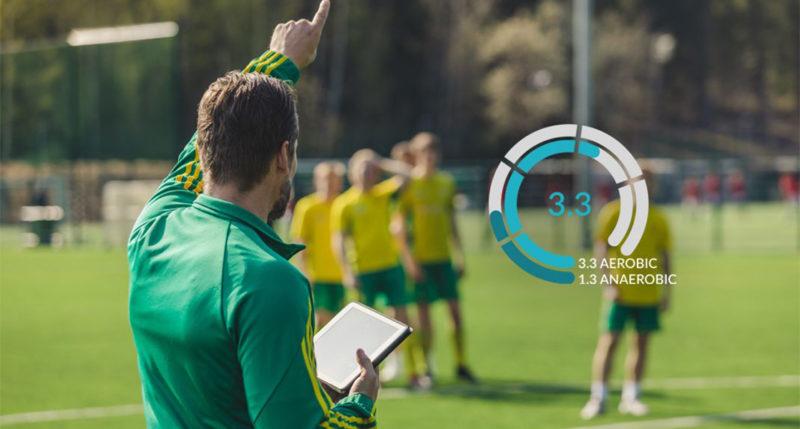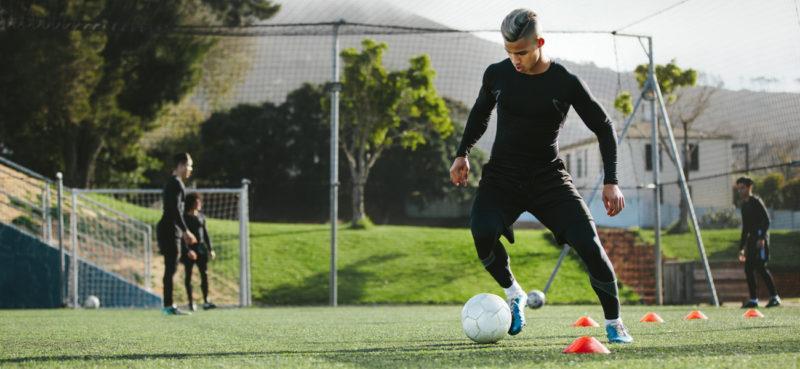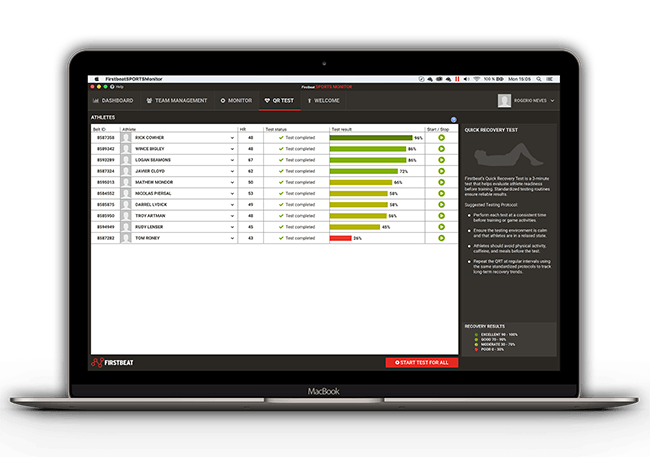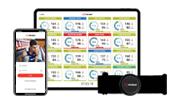
In the world of elite sports, success is often determined by the quality of your backup plan. When the margin for error decreases, the value of taking the next right step becomes even more important. This is an area where teams taking an analytic approach to training, recovery and player development have an advantage.
At this point, late in the 2016-17 season, Tottenham Hotspur are one the handful of teams locked in tight contention at the top of the English Premiership League table. Currently sitting in second place, behind league leaders Chelsea, Spurs have collected 59 points from their first 28 league games, hoping to improve on last season’s 3rd place finish.
Interested in learning how Firstbeat’s Quick Recovery Test is applied in soccer? Listen to the Firstbeat Sports Podcast
Tottenham’s ambitions for the season were dealt a sobering blow on March 12th, when star striker Harry Kane exited the team’s FA Cup quarter-final match against Millwall in the 6th minute with an ankle injury. The incident occurred as Kane took a shot on goal challenged by Millwall defender Jake Cooper, and appeared similar to an injury Kane had sustained earlier in the season.
Spurs Head Coach Mauricio Pochettino remained optimistic during his postgame press conference. “Harry is our main striker, one of the best in England, but we can’t cry about it now,” he insisted. “We have to be positive. We have players enough to try and replace him. It won’t be an excuse if we don’t win or achieve our aims because Harry is not in the team.”
Korea’s Heung-min Son and Vincent Jansen of the Netherlands are two players expected to fill in the for the injured Kane, who notched a remarkable 24 goals in 28 appearances on the season. Son and Jansen each bring their own style of play to the team and offer flexibility that allows the team to battle despite Kane’s absence from the pitch.
“There aren’t many players in the world you can replace Harry with but it is a chance for someone else to step up,” summarized midfielder Eric Dier. “Not just the strikers but the whole team.” Situations like this create pressure not only for players, but also coaches and trainers tasked with ensuring that the remainder of the team is healthy and safely performing at a high level.
Training load monitoring and recovery testing are among the ways that top teams like Tottenham Hotspur are leveraging science and technology to reduce injuries and create competitive advantages on the field. As a common contributor to contact and non-contact injuries alike, fatigue is a topic of special interest for top trainers.
We are confident that with the right approach to recovery management a substantial number of injuries can be and are being avoided”
One of the tools that Tottenham’s staff have at their disposal to assess player readiness is the Firstbeat Quick Recovery Test, which is integrated into company’s cloud-based Sports Monitor platform. “We are confident that with the right approach to recovery management a substantial number of injuries can be and are being avoided,” says Veli-Pekka Kurunmäki, who leads Firstbeat’s Sports division. “Of course, consistently taking the right approach requires putting actionable data in the hands of decision makers.”
Firstbeat’s ability to quantify recovery relies on the ability to interpret beat-to-beat changes in heart rate function, a process known as heart rate variability analysis. The quick version of the test only takes three minutes to complete and was originally designed to be performed in the locker room before training. Several poor recovery scores in a row may motivate further investigation with a longer sleep recovery test, or trainers may move directly towards recommending some form of intervention.
The possibility of easy and non-invasive recovery testing means that it can be integrated into daily training activities. Regular performance of this type of test is critical, as trend monitoring is an important step in the process of individualizing training and recovery prescriptions based on the unique profile of each player. Additionally, fatigue can accumulate in a player’s body over the course of the season, meaning that, unchecked, late season games may require longer recovery times.
Last year, an app based version of the test was introduced that allows players to conduct the test themselves at home using a heart monitoring chest belt paired with their smartphone. Results of the player’s recovery test are uploaded directly from the app to the primary system used by the team’s coaches and training staff.
Looming large on the Tottenham calendar is their FA Cup Semi-final match up against EPL leaders Chelsea on April 22nd. Expected to be out 4-6 weeks, it is unlikely that Kane will be back in the starting lineup for that marque test. It is certain, however, that Spurs focus on recovery will play a role in ensuring that the team that takes the field in his absence is prepared for the challenges of stepping up in his absence.
If you liked this article, you should subscribe to our newsletter.
You might also be interested in

How to Use Training Effect: The Firstbeat Sports Feature that Measures the Impact of Training
In this article, we look at how Training Effect is calculated, the Training Effect scale, and how it is visualized in Firstbeat Sports.

Why Monitor Internal Load in Elite Sports?
A look at the what, how and why of internal load monitoring and why it should form part of your training program.

Using Data to Start Key Discussions With Your Athletes – With Jen Mavis, UMBC Soccer – Ep. 7
UMBC Women’s Soccer’s Assistant Coach talks about building trust between coach and athlete, preventing soft tissue injuries, the changing landscape of NCAA competition and coaching, + more




